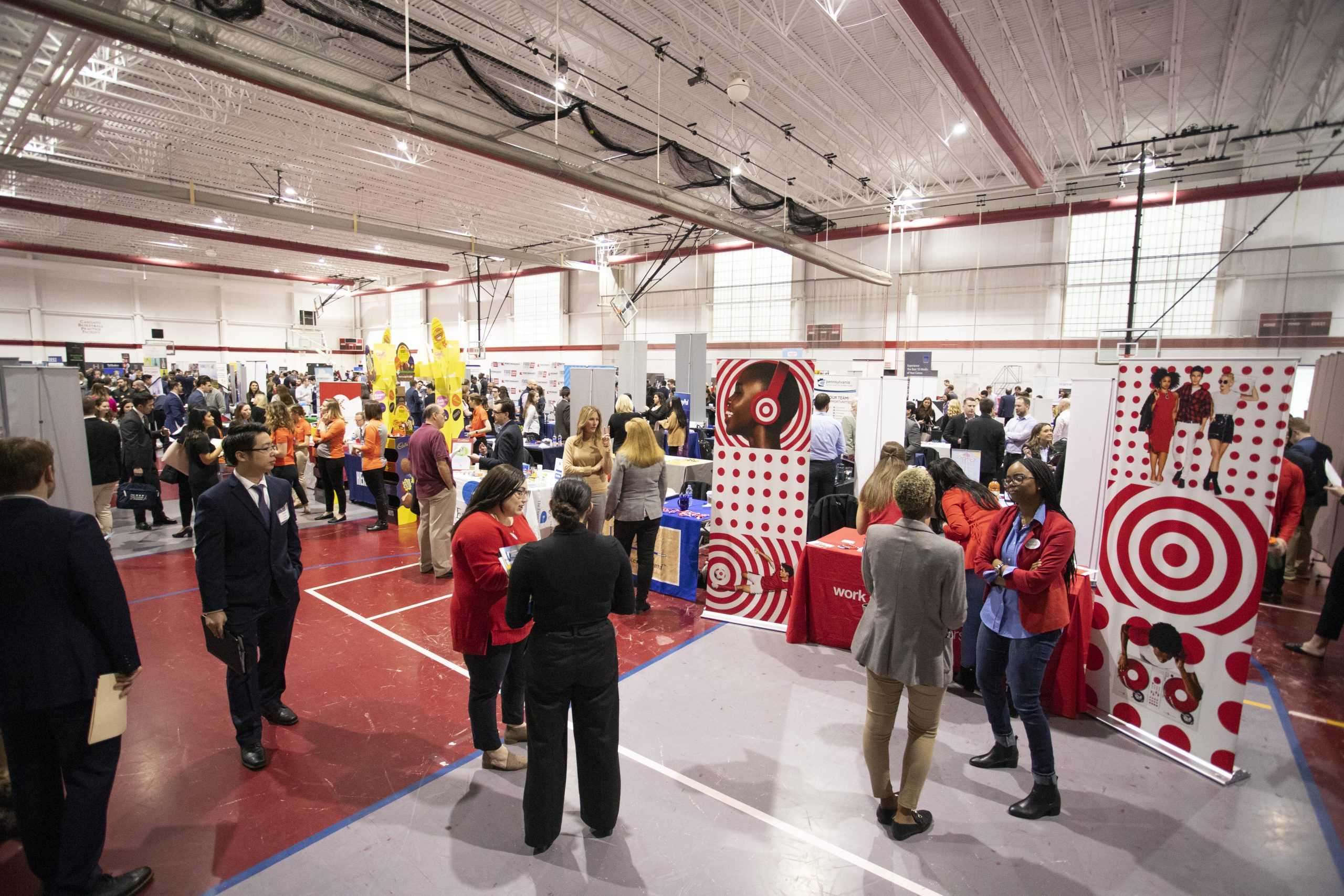When Jack McKernan ’20 peered through the doors of the SJU Athletics Center last spring, he was overcome with anxiety.
McKernan, an education major, had come to check out the annual spring Career Fair, sponsored by the Career Development Center (CDC).
“One-on-one with employers, it’s easy to be professional, but with all those people around, it felt as if it were Thanksgiving Day in my grandmother’s incredibly crowded kitchen, filled with a lot of people and no food,” McKernan said.
That anxiety lingered with McKernan so much that he was not among the approximately 400 students who attended the spring 2020 Career Fair on Feb. 13.
“To be brutally honest, I was in pain just thinking about it,” McKernan said.
While the Career Fair can be intimidating and overstimulating for many students, for students like McKernan, who have autism spectrum disorder (ASD), it can be especially challenging.
“For our students with autism, it can be really difficult focusing on the task at hand, while also having these competing sounds going on around you,” said Alli Gatta, assistant director of College Autism Support for the Kinney Center. “It can be very difficult to focus on a conversation with one person.”
Mary Ann Newell, assistant director of College Support at the Kinney Center, said the ASPIRE program, which offers support for students with ASD, works with students in the program to prepare them for the Career Fair. As part of a career readiness class, ASPIRE students are required to meet once a week for a full year, working on resumes, interviewing skills, networking and internships.
“We had them practice talking with each other and telling different people about themselves,” Newell said of recent networking activity.
When it comes to the actual career fair, students are encouraged to read the map of the fair ahead of time and target the employers they want to talk to.
“We encourage them to start with the employer they are less interested in, and then work their way up, just so they have time to practice,” Newell said. “It can be difficult and overwhelming going to different tables and staying organized, so it is beneficial having those first few times to practice.”
Students are also encouraged to bring a paper or project with them that demonstrates their skills.
“Doing that will be helpful for students who prefer to think in concrete terms rather than abstract,” Newell said.
The ASPIRE program also works closely with CDC staff, Newell said, helping students focus on organization and socialization.
“I think that the career center does a really lovely job of setting up these opportunities and providing resources, whether it’s the online career toolkit available on Canvas, organized calendars or the drop-in days that they have leading up to the Career Fair,” Newell said.
Career fairs are just one step in a larger hurdle for people with ASD when it comes to employment, though. About 85% of people with ASD are unemployed, according to Autism Speaks, an organization that aims to increase acceptance of people with autism.
But the students in St. Joe’s ASPIRE program reflect a flip of national statistics. Less than six months after graduation, 88% of these students are either employed or enrolled in a graduate program.
Gatta said while no two people with ASD are alike, there are skills that many people with ASD have that make them really good employees.
“ASD students pay very close attention to detail, they are disciplined in keeping on track with work and they are on time,” Gatta said. “A lot of people with autism don’t mind doing repetitive tasks, so while that may be boring or tedious for some people, it might be quite fun for a student with autism.”
At the spring 2020 Career Fair, Todd Serenbetz, principal of the Y.A.L.E school, was interested in hiring students with ASD. The Y.A.L.E. school, based in Cherry Hill, New Jersey, provides education to students with disabilities from ages two to 21.
Serenbetz said graduates with ASD have more of a personal connection with Y.A.L.E. students and are comfortable with the school’s population.
“That to me is a huge benefit because if you have that empathy and can understand what kids are going through, then that is going to make someone a very valuable employee,” Serenbetz said.
Serenbetz added that students who can advocate for themselves can advocate for others.
“The thing that I really like about hiring ASD students is that they have developed self-advocacy skills,” Serenbetz said. “We want them to have those advocacy skills that they develop in college and bring it into the workplace themselves. They can utilize that to help advocate for the students they are working with.”
As for McKernan, he plans on apply- ing for jobs in Philadelphia and hopes to become a teacher’s aide, someone responsible for assisting with classroom instruction and responsibilities.
“After college, I hope to help rebuild communities that are disenfranchised, create a world that understands its history and continue to build a better future,” McKernan said.
Mitchell Shields ’22 contributed to this article.














































